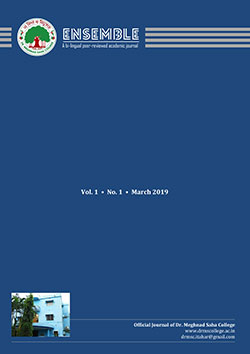POLICIES AND THEIR IMPLEMENTATION IN INDIA: AN ASSESSMENT BEFORE AND DURING COVID-19 LOCKDOWN
Abstract
To prevent the Covid-19 effect, governments across world have imposed lockdown besides the other preventive measures. Undoubtedly, lockdown has affected the world adversely in terms of economy and human resources. But, India being a country of diversity where people of different caste, class, race, and ethnicity live is affected greater than other countries. Due to diverse socio-economic structures, living standard of Indian is unequal. This inequality forces underprivileged sections to migrate for livelihood and better opportunities to other places. The lockdown in India which was with a purpose to prevent community spread of Covid-19 resulted in the greatest exodus of migrant labour and their hunger, disease and death on the roadside. Owing to the socio-economic structure and also Covid-19, Indian govt. has been launching various welfare schemes to cope up the situation and uplift the marginalised sections. But the exodus and its results during Covid-19 pandemic not only expose the reality but also raise some questions as to why exodus occurred only in India. Why did numerous die during the reverse migration? What schemes and programme did government launch? And most importantly, how these schemes are implemented before and during lockdown? What is the attitude of mainstream society and state agencies towards these marginalised groups in terms of schemes and their implementation? To map this, before and during lockdown, scrutinizing some autobiographical narrative and incidents, this paper attempts to explore the schemes/programmes and their implementation. The exploration proves that there is a crystal clear biasness in policy formulation and their implementation. Consequently, study may help the governments and civic society in near future in formulation such programmes and their result-oriented execution.
Keywords: Difference, status of marginalized, execution of policies, discriminatory attitude, Caste, pandemic
https://doi.org/10.37948/ensemble-2021-sp1-a005
Views: 3058



